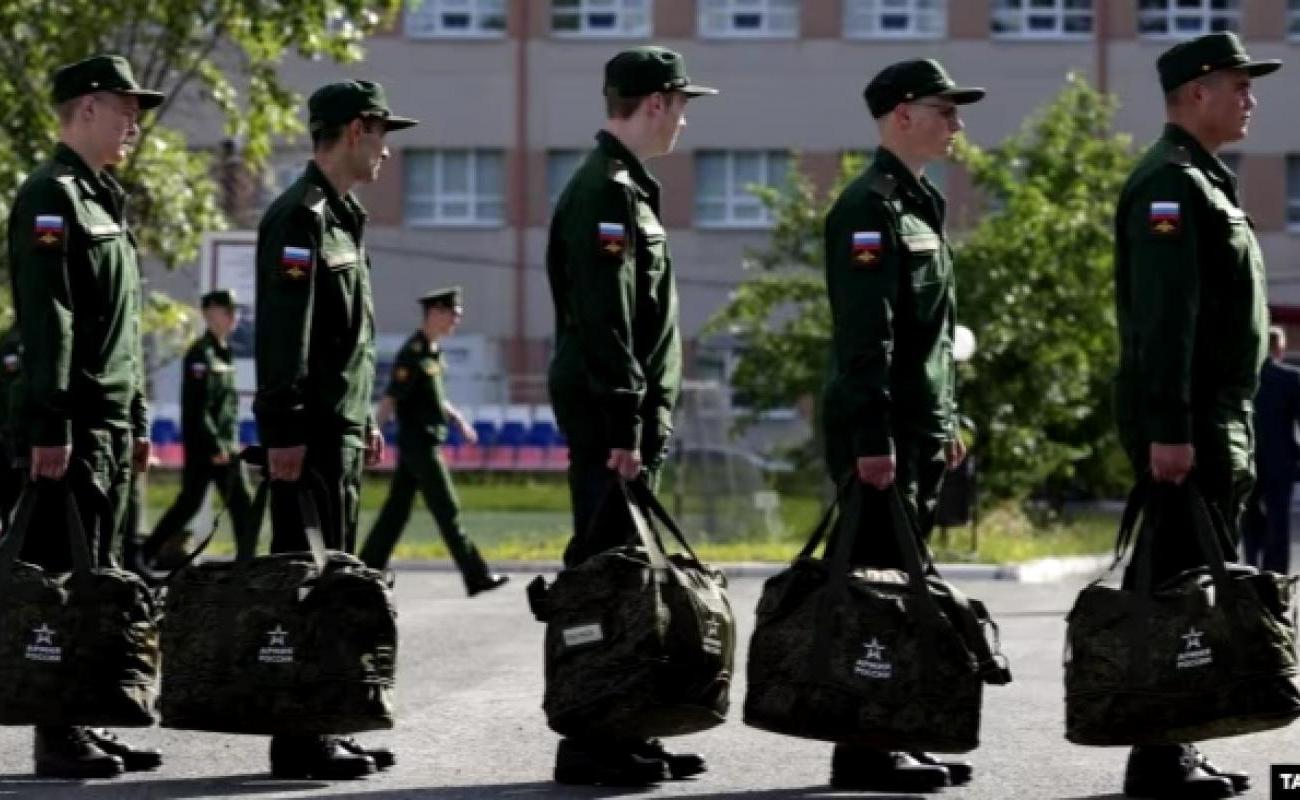'The Only Option': To Escape War In Ukraine, More Russian Soldiers Are Deserting

As fighting raged in an around Bakhmut amid Russia's unrelenting assault earlier this year turning the eastern Ukrainian city to rubble, a Russian conscript began plotting how he would desert shortly after being deployed there.
Anton (not his real name) said he was given a two-week leave in August that would prove his ticket out of the carnage.
"From the first days there, I began to intensely study this. I surfed the Internet. What? How? Where?" Anton recounted recently from an undisclosed location abroad to Current Time, the Russian-language network led by RFE/RL in cooperation with VOA.
Anton is just one of a growing number of Russian soldiers who have reportedly deserted their military units in Ukraine. While no hard figures are available, the independent news outlet Mediazone has reported that 2,076 criminal cases were opened in the first half of 2023 against Russian soldiers accused of abandoning their units without leave. That is said to be twice the total for 2022 and three times higher than the prewar figure for 2021. Analysts say the true figures are likely higher given the Kremlin's systematic attempts to hide information about the military.
Despite the risks of prosecution, it's a gamble more Russian conscripts appear to be willing to take. The Georgian-based antiwar organization Idite Lesom -- which means "go through the forest" in Russian – helps Russian soldiers to desert. It said 18 percent of all requests they've received from those wanting to desert were registered in October alone.
"There is no rotation; it is very difficult to go on leave. Deserters who went on leave or ended up in the hospital say this is their only option not to end up in the war again," Daria Berg, an activist with Idite Lesom, told Current Time.
The voices of the wives of Russian soldiers have grown louder too in recent weeks, too, challenging the Kremlin's argument that mobilized troops are needed in combat indefinitely to secure what Moscow defines as victory in Ukraine.
In no mood to compromise, Russian authorities "are likely attempting to quash public dissent by wives of deployed soldiers, including by attempting to pay them off and discrediting them online. This follows small protests in Moscow in November," the British Defense Ministry noted in its Intelligence Update on December 2.
It pointed out that on November 27 a prominent online group for soldiers' wives published a manifesto against 'indefinite mobilization" but was quickly "pinned with a 'fake' warning label -- likely at the instigation of pro-Kremlin actors."
"The authorities are likely particularly sensitive to any protests related to those citizens mobilized in September 2022, who have now been at the front line for over a year," the British Defense Ministry said.
The protests by wives come amid a reported uptick in Russian military casualties as its forces attempt to seize the small eastern Donbas city of Avdiyivka amid strong Ukrainian resistance.
Due to that Russian offensive, the British Defense Ministry said on November 27 that "the last six weeks have likely seen some of the highest casualty rates of the war so far."
Neither Moscow nor Kyiv gives timely data on military losses, and each is at pains to amplify the other side's casualties. Russia has publicly acknowledged the deaths of just over 6,000 soldiers. The real figure is likely much higher.
The first independent statistical analysis released in July found that nearly 50,000 Russian men had died in the war in Ukraine.
For those soldiers deployed on the battlefield and yearning to desert, the chances are slim to none, according to Berg.
"This is very difficult to do, because if you are already in the war zone in the occupied territories, there are detachments that, if they don't kill you, they'll put you in pits. These are like prisons, where [the would-be deserter] is tied naked to trees. The conditions are unbearable," Berg explained.
